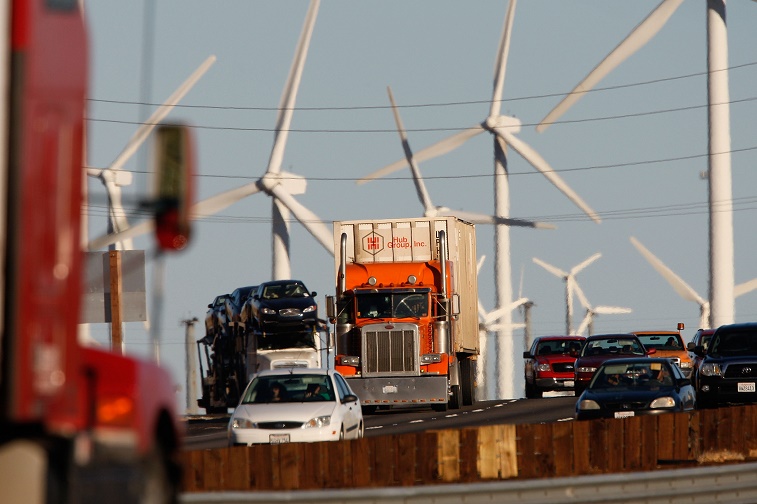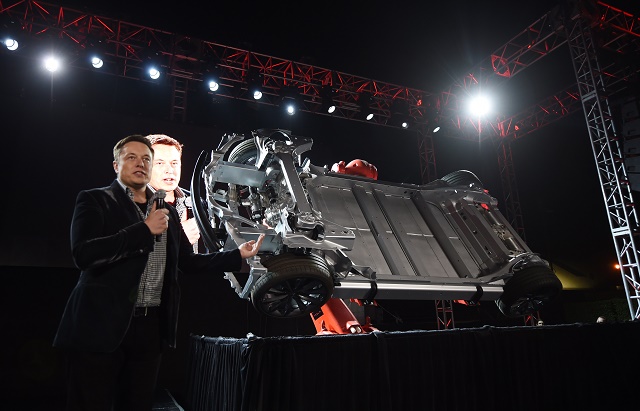
Wait, electric vehicles aren’t green? Or maybe electric cars are just “dirtier than you think.”
Either way you’d like to phrase it, it was a big day for Big Oil when The Economist, that bastion of financial prudence and myth debunking, published a tale titled “Cleaner than what?” in late 2014. Referencing a study about life-cycle emissions comparing EVs versus other cars, The Economist circulated numerous myths about electric vehicles, several of which made the rounds online.
Here is your Cheat Sheet to debunking four of those myths.
Myth 1: EVs are not clean
We start with an easy one. If you drew one conclusion from the study The Economist cited, it would be “coal is dirty.” University of Minnesota researchers studied the impact of transportation options (i.e., gasoline cars, EVs, diesel cars, and others) on air quality in the U.S. Their findings, published in Proceedings of the National Academy of Sciences, confirm what we have known about electric vehicles for a long time.
We find that powering vehicles with corn ethanol or with coal-based or “grid average” electricity increases monetized environmental health impacts by 80% or more relative to using conventional gasoline. Conversely, EVs powered by low-emitting electricity from natural gas, wind, water, or solar power reduce environmental health impacts by 50% or more.
When you use coal to power electric vehicles, it’s not a winning formula; when you used greener power sources, EVs are much better for the environment and human health than gasoline cars.
Myth 2: Americans charge EVs on coal
“Even a battery car running on the average mix of electrical power generated in America is much more hazardous than the conventional alternative.” That’s the sentence closing the first paragraph of The Economist article.
The “average mix” means averaging the amount of coal used in Kentucky’s electric grid with the average amount of coal used in California’s grid (and so on). That’s not how the system works. Folks out in La Jolla aren’t fed shovels of Kentucky coal when they plug in a Nissan Leaf to drive from San Diego to the O.C.

David McNew/Getty Images
If there were a comparable number of EVs on each U.S. state’s roads, this claim might have some basis in reality. But over half of America’s electric cars are zooming down California roads. Kentucky is not even in the conversation.
As for California, just 7.82% of the state’s electricity comes from coal sources. So saying there’s a relationship between the electric grid of the South and the charging stations out in the Golden State is purely mythical.
Myth 3: EV emissions reductions are negligible
Out in EV country, California’s electric grid uses natural gas (44.31%), renewables (18.77%), large hydroelectric (7.76%) and nuclear power (8.84%) to get its EVs charged. These sources of electric power are the ones University of Minnesota researchers said “reduce environmental health impacts” by at least 50%.
Oregon, another one of the top states for electric vehicles on American roads, gets 70% of its net electricity generation from hydroelectric and other renewable sources. According to the research, this mix provides major reductions in greenhouse emissions and, therefore, lower health risks for area residents.
Washington State is another force in reducing greenhouse gas emitted from transportation. The city of Seattle alone has 9,000 registered EVs on the street. Looking at the high ratio of hydroelectric power in the grid, it’s clear emissions reductions are substantial.

MARK RALSTON/AFP/Getty Images
Myth 4: EV makers are deceiving the public
The Economist kicked off its article with this zinger:
Driving an electric car confers a badge of greenery, or so the marketing departments of their makers would have you believe.
That sounds like Tesla, which is currently testing solar power for Superchargers (i.e., true zero emissions driving), is hoodwinking the public by saying electric cars are greener. There is no factual basis for this claim. Sure, electric vehicles would be pretty rotten for the environment if every one was driven in Kentucky and charged at peak use hours, but that’s the opposite of reality,
So why would The Economist spin a well-researched study into a myth-filled attack on electric vehicles and their manufacturers? It is difficult to say, but we know the publication’s easy-tweeting headlines reached a wide audience online. (N.B. We gave the The Economist’s interpretation the benefit of the doubt here.)
We found valiant efforts to beat back the myths, too.
Over-hyped headline + obvious findings = dumb article. The Electric Car Is Dirtier Than You Think http://t.co/EbFPWRxu0k via @BostInno
— Gail Greenwald (@gailgreenwald) December 29, 2014
These retorts are inspiring, but judging by the 9,000 Facebook “likes” for the original Economist article, many of those myths embedded in the minds of the population. That’s life in 2015, you might say, and you’d be right. We’ll just have to keep try debunking the myths as they come.
More from Autos Cheat Sheet:
- Are Mercedes Electric Vehicles Greener Than Gasoline Models?
- The 10 Most Efficient Automobiles of the 2015 Model Year
- 7 Reasons Electric Vehicle Adoption Is Inevitable in America
Want more great content like this? Sign up here to receive the best of Cheat Sheet delivered daily. No spam; just tailored content straight to your inbox.
Read the original article from Wall St. Cheat Sheet